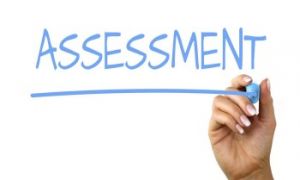Confrontation refers to coming “face to face” with another person and to bring up something that the other person probably does not want to hear. That’s what makes confrontation challenging.
Effective confrontation requires that instead of arguing, fighting or correcting, you simply identify the behaviour that you do or don’t want and why, for you, it is unacceptable.
Dealing With Confrontation
For many of us, confronting someone over their behaviour can cause major anxiety. However, there is only so much you can deal with without having to speak up for yourself.
So, it's important when the behaviour doesn't stop after your attempts to ignore it you need to have a confrontation.
"Be careful what you tolerate. You are teaching people how to treat you".
- Know When It's Time To Speak Up - The two big ones: safety and development. There are times when we need to speak up to ensure safety and without addressing the issue, the person who needs to hear it will never learn and may continue their behaviour. It’s a vicious cycle. If avoiding confrontation will either perpetuate a lack of safety or wind up doing both you and the other person a disservice, it’s time to talk face to face.
Before The Confrontation
- Take A Deep Breathe - just before the confrontation. This lowers heart beat and blood pressure.
- Breather Slower - this lowers the amount of adrenaline running through your body
- Take 5 Minutes - recap what you're going to day. Make key points for of your argument.
- Timing - Ask to schedule some time when the person will be most open to hearing from you.
For example:
“I have something that’s really bothering me and I would like to sit down and share it with you. Would this be a good time or would another time be better for you?”
During The Confrontation
- Negotiate - Before you even start talking about what’s bothering you, negotiate with the person you are confronting about what you need from them in this conversation. Explain that you need to talk to them about something, but that confrontations are hard for you, so you need them to listen, and stay calm, and give you their full attention. Promise to be calm yourself, and not to level any emotional accusations. Only start the conversation once the other person is on the same page as you about how serious this is, and what you need from them to continue. If you think there’s a chance you might start to cry, but you don’t want them to panic if that happens, now is the time to make that clear.
- All You Know Is How You Feel - You’ve probably heard this before: “I” statements are much more useful than “you” statements.
For example:
“When you do..., I feel like you are talking down to me” is much more useful than “You talk down to me all the time.”
In the latter case, all they have to say is “No I don’t” and all of a sudden you are in an unproductive conversation in which you are arguing about their intentions, instead of the hurt caused by their actions. In the former case, a “No I don’t” can be met with a “Well, in that case, can we talk about why you do..., if it’s not that? Or how we can help me not feel hurt by this behaviour?” which might actually get you somewhere.
- Be Specific - No matter what you’re trying to address, try to get to the core of the issue as quickly as possible. Beating around the bush or using vague examples can makes things unclear and prolong an already awkward conversation. Be sure the other person will be able to understand what you’re talking about. Use specific examples and ask questions to make sure they are understanding. Stick to the facts
For example ask questions:
- What happened from your point of view?
- What did I do that upset you?
- What could I have done differently?
- Are there ways that will help us work together better in the future?
- What do you mean by __________?
- How do you see this working out?
- Focus On The Behaviour, Not The Person - When people start to focus on personal traits and characteristics that are being framed in a negative light, the conversation never ends well. To keep the conversation productive, stay out of this realm entirely. Talking about the behaviours and actions that are problematic.
- Be Kind and Direct
For example:
“I know this may be difficult to hear….”
“There’s something I need to speak with you about and I hope you’re able to listen so that we can work together….”
“This is a difficult conversation, but I would rather you hear this information from me than from someone else….”
- Process - If this is the first time someone’s hearing this information, allow them time to process and think. It’s also important and courteous to offer them the opportunity to speak. Ask if they have anything they want to add or ideas for how best to deal with these issues and move forward. However, depending on the situation and other person, once you’ve given them an opportunity to speak, you risk inviting defensive accusations from their end.
- Limit Defensiveness - They are going to feel defensive. That is pretty much a guarantee. That’s okay. Give them space in the conversation to work through that. Reassure them that you are not attacking them as a person; you just have an issue with some of their behaviours. If their defensiveness starts going in a seriously unproductive direction, gently point out that they are being defensive, and remind them of what you negotiated up front. Resist the urge to be pulled into a fight. There are some people who’ll become defensive and try to make the conversation about you.
For example:
‘Thank you for letting me know, that’s another conversation I’m happy to have with you, but for today we need to address..."
Acknowledging what they’re saying lets them know you’re listening, empathizing, and willing to work together to restore balance.
- Don’t Take Things Personally - Whatever is being said to you, try not to take it personally. People who are angry can sometimes launch into diatribes that are meant to tear a strip off of you. The comments are most often more reflective of the other person than they are of you. Although it is absolutely justified to feel hurt by personal attacks, remind yourself that you are not someone else’s perception of you.
- Know When the Conversation Is Over - Once the issue has been talked out, call it quits. If the confrontation went well, then it's a success. If it didn’t, end things once it’s obvious that you’re not getting anywhere anymore.
Remember:
- Start out calm
- Choose a neutral space
- Ask to chat
- Clarify the problem
- Tackle the issue
- Seek a resolution
- Thank them for hearing you out
When you are confronting someone else, you aim is to work on the situation in a mature manner, thus, helping avoid conflict. Instead of viewing confrontation as threatening and scary, remind yourself that working through it is actually a step towards collaboration, harmony, and teamwork.
References:
How To Confront Someone, Real Simple Life Etiquette
Prepare Yourself For Confrontation, Boggle The Owl, Tumblr
Conflict Resolution Process, Work Sheet Place
Confrontation In The Workplace, Lindsay Lapaquette



 As an Educator in Australia, your pay rate falls under the Children’s Services Award 2010. This award states the minimum amount that an employer can
As an Educator in Australia, your pay rate falls under the Children’s Services Award 2010. This award states the minimum amount that an employer can When working as a qualified Early Childhood Teacher (with a university degree) within a service, your rate of pay will come from the Educational Services
When working as a qualified Early Childhood Teacher (with a university degree) within a service, your rate of pay will come from the Educational Services When working as a Diploma Qualified Educator your pay rate is from the Children's Services Award 2010. This Award states your minimum rate of pay
When working as a Diploma Qualified Educator your pay rate is from the Children's Services Award 2010. This Award states your minimum rate of pay When working as a Cert 3 Qualified Educator, your pay rate is from the Children's Services Award 2010. This Award states your minimum rate of
When working as a Cert 3 Qualified Educator, your pay rate is from the Children's Services Award 2010. This Award states your minimum rate of Educational Leaders play a crucial role in their early childhood service by ensuring that the educational program aligns with best practices and supports the holistic
Educational Leaders play a crucial role in their early childhood service by ensuring that the educational program aligns with best practices and supports the holistic In early childhood education and care, ratios are more than a technicality—they are a frontline safeguard. Every child deserves responsive supervision, emotional connection, and developmental
In early childhood education and care, ratios are more than a technicality—they are a frontline safeguard. Every child deserves responsive supervision, emotional connection, and developmental With the new national child safety reforms kicking in on 1 September 2025, early childhood services like yours have a real opportunity to lead the
With the new national child safety reforms kicking in on 1 September 2025, early childhood services like yours have a real opportunity to lead the Here’s a comprehensive Mobile Phone and Smart Watch Policy tailored for early childhood education and care (ECEC) services in Australia, aligned with the latest 2025
Here’s a comprehensive Mobile Phone and Smart Watch Policy tailored for early childhood education and care (ECEC) services in Australia, aligned with the latest 2025 The Sea of Fish Challenge is a national initiative that invites children, educators, families, and communities to create and display fish artworks as a symbol
The Sea of Fish Challenge is a national initiative that invites children, educators, families, and communities to create and display fish artworks as a symbol Across the early childhood education and care sector, educators are sounding the alarm: current staffing ratios are insufficient to deliver safe, meaningful, and developmentally appropriate
Across the early childhood education and care sector, educators are sounding the alarm: current staffing ratios are insufficient to deliver safe, meaningful, and developmentally appropriate


